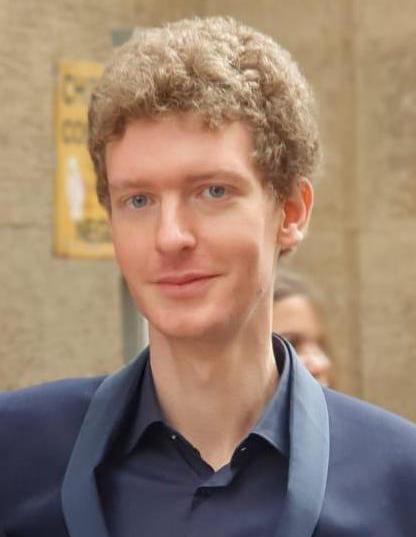Studying at the University of Verona
Here you can find information on the organisational aspects of the Programme, lecture timetables, learning activities and useful contact details for your time at the University, from enrolment to graduation.
Academic calendar
The academic calendar shows the deadlines and scheduled events that are relevant to students, teaching and technical-administrative staff of the University. Public holidays and University closures are also indicated. The academic year normally begins on 1 October each year and ends on 30 September of the following year.
Course calendar
The Academic Calendar sets out the degree programme lecture and exam timetables, as well as the relevant university closure dates..
| Period | From | To |
|---|---|---|
| Sem. 1A | Sep 23, 2024 | Nov 3, 2024 |
| Sem. 1B | Nov 4, 2024 | Dec 22, 2024 |
| Sem. 2A | Feb 17, 2025 | Mar 30, 2025 |
| Sem. 2B | Mar 31, 2025 | Jun 1, 2025 |
Exam calendar
Exam dates and rounds are managed by the relevant Humanistic Studies Teaching and Student Services Unit.
To view all the exam sessions available, please use the Exam dashboard on ESSE3.
If you forgot your login details or have problems logging in, please contact the relevant IT HelpDesk, or check the login details recovery web page.
Should you have any doubts or questions, please check the Enrollment FAQs
Academic staff
 evita.calabrese@univr.it
evita.calabrese@univr.it
 sofia.piacentin@univr.it
sofia.piacentin@univr.it
 pieralberto.porcedducilione@univr.it; pierre_pordd@yahoo.it
pieralberto.porcedducilione@univr.it; pierre_pordd@yahoo.it
 045 8028732
045 8028732
Study Plan
The Study Plan includes all modules, teaching and learning activities that each student will need to undertake during their time at the University.
Please select your Study Plan based on your enrollment year.
1° Year
| Modules | Credits | TAF | SSD |
|---|
1 module between the following2° Year It will be activated in the A.Y. 2025/2026
| Modules | Credits | TAF | SSD |
|---|
2 modules among the following2 modules among the following3° Year It will be activated in the A.Y. 2026/2027
| Modules | Credits | TAF | SSD |
|---|
2 modules among the following1 module between the following| Modules | Credits | TAF | SSD |
|---|
1 module between the following| Modules | Credits | TAF | SSD |
|---|
2 modules among the following2 modules among the following| Modules | Credits | TAF | SSD |
|---|
2 modules among the following1 module between the following| Modules | Credits | TAF | SSD |
|---|
Further activities3 modules among the followingLegend | Type of training activity (TTA)
TAF (Type of Educational Activity) All courses and activities are classified into different types of educational activities, indicated by a letter.
Roman history (It will be activated in the A.Y. 2025/2026)
Teaching code
4S007531
Credits
12
Scientific Disciplinary Sector (SSD)
-
Learning objectives
I MODULE
Aims of the course are an improvement of the knowledge of the Roman civic culture during the Imparial Age, of the extention of the Roman citizenship to Italy and then to the Roman Empire, and the understanding of the fundamental principles which the Roman society and its relationships with foreigners were based on. The study takes into account documents referring to the changes of the rights of Italian and provincial cities. Students will be encouraged to study documentary sources being either archaeological, literay or epigraphic. Their analysis will enable students to understand and distinguish the features pertaining to different kinds of documents and make a comparison between them. Students will single out the principles of the social cohesion of the Romans, their ability to integrate non-Romans into their society and politics, and their most important political enactements such as the Constitutio Antoniniana which deeply modified the social life and principles. Moreover, students will understand the reason why principles of the social life underwent crises during the 3rd century.
Students will learn how to evaluate autonomously documents of the Roman history by means of a comparison between different authors or between authors and different kind of sources, and deem their reliability. Students will improve their communication skill, will express their opinions and even their doubts concerning problems arising from the course and will receive answers and also directions on how to shape their exposition. Their learning skill will be improved and at the end of the course they should demonstrate to be able to analyse critically at least the sources and iconographies taken into account, to present in a logical sequence their discourses, clearly and on the basis of the most important documents.
II MODULE
The aim of the course is that of improving the knowledge of the relationships between politics and religion during the Imperial Age and of the basic principles which the Roman society and religion were based on. The study will take into account texts referring to the persecution and the triumph of Christianity. Students will be encouraged to study documentary sources being either archaeological, literay or epigraphic. Their analysis will enable students to understand and distinguish the features pertaining to different kinds of documents and make a comparison between them. Students will single out the principles of the social cohesion of the Romans, their attitude in their relationship with non-Roman cultures, the repression or approval of these latters during the 2nd to the 4rd century. Students will learn how to evaluate autonomously documents of the Roman history by means of a comparison between different authors or between authors and different kind of sources, and deem their reliability. Students will improve their communication skill, will express their opinions and even their doubts concerning problems arising from the course and will receive answers and also directions on how to shape their exposition. Their learning skill will be improved, as well, and at the end of the course they should demonstrate to be able to analyse critically at least the sources and iconographies taken into account, to present in a logical sequence their discourses, clearly and on the basis of the most important documents.
Educational offer 2023/2024
You can see the information sheet of this course delivered in a past academic year by clicking on one of the links below:
Type D and Type F activities
Training offer being defined
Career prospects
Module/Programme news
News for students
There you will find information, resources and services useful during your time at the University (Student’s exam record, your study plan on ESSE3, Distance Learning courses, university email account, office forms, administrative procedures, etc.). You can log into MyUnivr with your GIA login details: only in this way will you be able to receive notification of all the notices from your teachers and your secretariat via email and soon also via the Univr app.
Student mentoring
Linguistic training CLA
Gestione carriere
Practical information for students
Documents
| Title | Info File |
|---|---|
|
|
pdf, it, 325 KB, 02/05/23 |
|
|
pdf, it, 212 KB, 02/05/23 |
|
|
pdf, it, 131 KB, 02/05/23 |
Graduation
Documents
| Title | Info File |
|---|---|
|
|
pdf, it, 99 KB, 13/10/23 |
|
|
pdf, it, 101 KB, 10/04/24 |
































